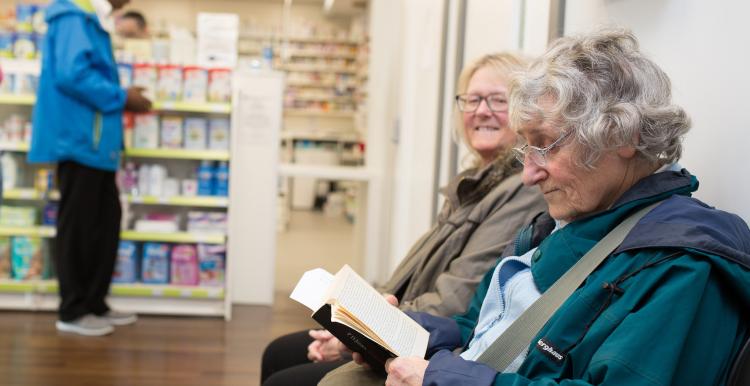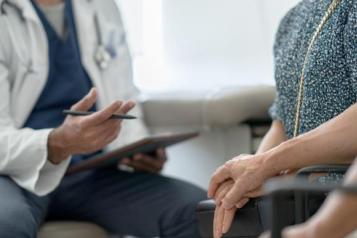What to do if you need help during the Jubilee Bank Holidays

Many common illnesses, such as sore throats and upset stomachs or bruises and sprains, can be treated more quickly by going to an emergency pharmacist or an out-of-hours GP service, which can be accessed through NHS 111, and both are available over the bank holiday weekend.
Dr Louise Clarke, a local GP and strategic clinical director at NHS Bradford District and Craven Clinical Commissioning Group (CCG) said: “We hope that everyone enjoys the upcoming Jubilee bank holiday weekend, but if you do need healthcare urgently, please remember that there’s a wide range of NHS services available.
“While most GP surgeries and some local pharmacies will be closed over the bank holiday weekend, you can still get help through NHS 111 if you think you need medical help urgently or aren’t sure where to go.
“NHS 111 is available online at 111.nhs.uk (opens in a new window) – it’s free to use and is open 24 hours a day, every day of the year. If you don’t have access to the internet or are asking about a child under 5, you can phone 111. They will be able to provide you with immediate medical advice and if necessary direct you to the best NHS service for your needs.”
Depending on the situation, NHS 111 can:
- find out what local NHS service can help you
- connect you to a nurse, emergency dentist, pharmacist or GP
- book a face-to-face appointment if you need one
- give an arrival time if you need to go to A&E – this might mean you spend less time in A&E
- help you speak to someone who can provide mental health support
- arrange for you to pick up medicine at a pharmacy near to you
- give you advice on how to look after yourself
People are also being encouraged to order their repeat prescriptions ahead of the bank holidays, which can be done using online services and apps for many GP practices. Getting regular prescriptions online can save patients time and avoid unnecessary trips to the GP.
Dr Clarke added: “If you take any prescription medicines regularly, please check that you have enough of them to last over the longer bank holiday weekend. While help will always be available for anyone who runs out of their medication, you can avoid that last-minute panic by checking now.
“And if you do have enough medicines, please don’t request anymore as it’s important that your local GP practice and pharmacy prioritise prescriptions for people who have run out of their regular medications.”
As qualified healthcare professionals, pharmacists are clinically trained in managing minor ailments and providing health and wellbeing advice, as well as offering over-the-counter medicines for a range of common illnesses. There is no need to book an appointment and many community pharmacies are open until late and at weekends and also have private consultation areas where patients can discuss any healthcare issues confidentially.
You can use the NHS find a pharmacy tool (opens in a new window) to find a pharmacy. Many pharmacies are open over the Jubilee bank holiday and you can find out which ones are open on the CCG webpage – https://www.bradfordcravenccg.nhs.uk/patients/your-health/bank-holiday-pharmacy-opening-times/
Five top healthcare tips for the Jubilee Bank Holiday weekend
- Be prepared for common health problems by keeping a well-stocked medicine cabinet at home so you can treat bumps and bruises and coughs and colds quickly
- Make sure that you have enough prescription medicines to last over the bank holiday weekend to avoid becoming unwell
- Health advice and information is available online all day and night, every day of the year via the NHS App (opens in a new window) or the NHS website (opens in a new window)
- If you are away from home, you can find out how to get help where you are by using the find NHS services tool (opens in a new window)
- For children’s health advice, you can download the ‘If your child is poorly’ booklet, which covers a wide range of illnesses in children including coughs, colds, constipation and tummy upsets.
Bank holiday pharmacy opening times
Pharmacists are experts in medicines and can help you with minor health concerns. You do not need to book an appointment to go to a pharmacy for advice.
Please do not go to a pharmacy if you have symptoms of coronavirus.
Please wear a face covering if visiting a pharmacy and follow the social distancing guidance given by your local pharmacy.
What can pharmacists help with?
As qualified healthcare professionals, they can offer clinical advice and over-the-counter medicines for a range of minor illnesses, such as coughs, colds, sore throats, tummy trouble and aches and pains.
If symptoms suggest it’s something more serious, pharmacists have the right training to make sure you get the help you need. For example they will tell you if you need to contact your GP practice.
All pharmacists train for five years in the use of medicines. They are also trained in managing minor illnesses and providing health and wellbeing advice.
To find out more about what to expect from your pharmacy, visit the NHS website (opens in a new window).
You can use the NHS service finder on the NHS website to find out your nearest pharmacy (opens in a new window).

